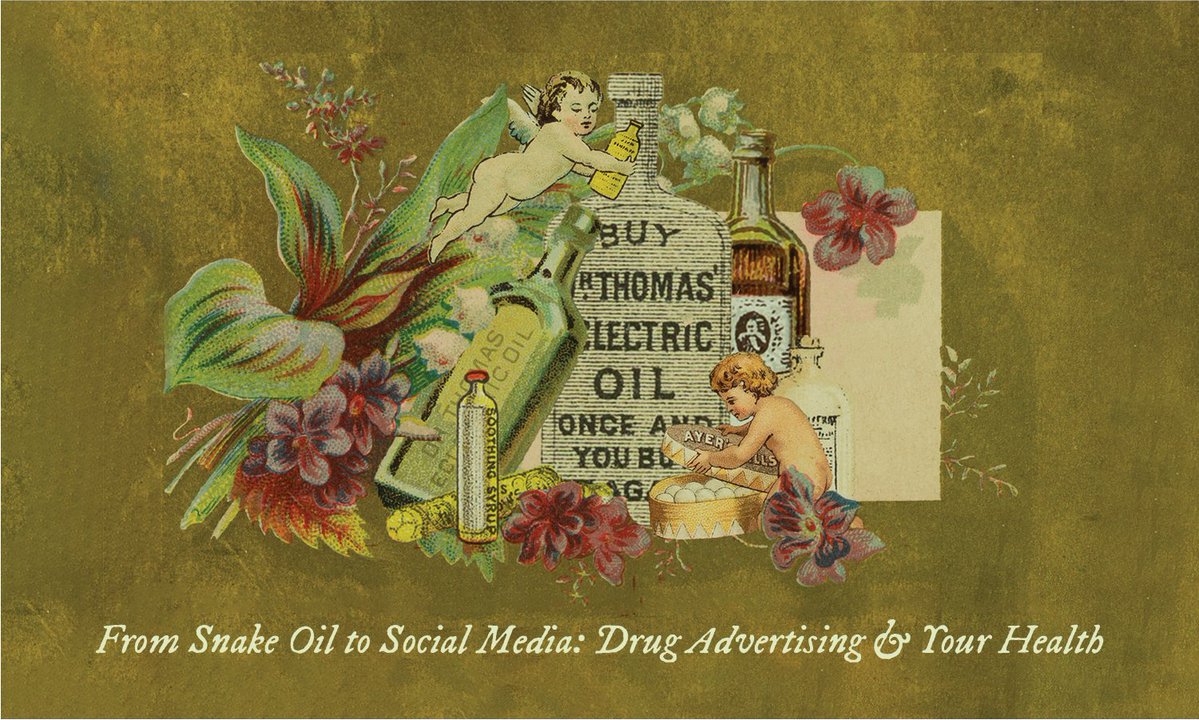By on May 11, 2021 - 4:18pm

How often have you seen advertisements promoting medications for depression, high blood pressure, or diabetes? Each year drug companies spend over six billion dollars on television, print, and internet advertisements. These advertisements, known as direct-to-consumer (DTCA) advertising, may include very persuasive claims. But should these claims always be believed?
To help you better understand drug advertising, and where you can turn to learn more about the medications advertised, Weill Cornell Medicine/NewYork-Presbyterian Hospital consumer health librarians, archivists, and pharmacists have created "From Snake Oil to Social Media: Drug Advertising & Your Health." This free, interactive online workshop provides an overview of historical and modern methods of drug advertising, highlights drug regulation and safety issues in United States, and provides questions to consider when viewing medication advertisements. This workshop will also introduce reliable, free online drug information sources from the National Library of Medicine (NLM) and the Food and Drug Administration (FDA).
Click here to explore the workshop!
Funding for this workshop has been supported by the National Library of Medicine (NLM), National Institutes of Health (NIH) under cooperative agreement number UG4LM012342 with the University of Pittsburgh, Health Sciences Library System. The content is solely the responsibility of the authors and does not necessarily represent the official views of the National Institutes of Health.
Blog Category:




